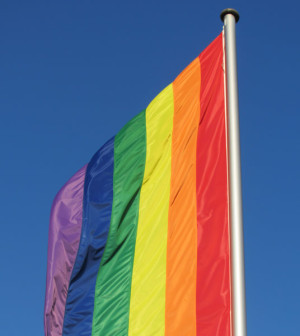- Could Your Grocery Store Meat Be Causing Recurring UTIs?
- Are You Making This Expensive Thermostat Error This Winter?
- Recognizing the Signs of Hypothyroidism
- 10 Strategies to Overcome Insomnia
- Could Artificial Sweeteners Be Aging the Brain Faster?
- Techniques for Soothing Your Nervous System
- Does the Water in Your House Smell Funny? Here’s Why
- Can a Daily Dose of Apple Cider Vinegar Actually Aid Weight Loss?
- 6 Health Beverages That Can Actually Spike Your Blood Sugar
- Treatment Options for Social Anxiety Disorder
Keep Allergies in Mind When Planning Valentine’s Day


When choosing a Valentine’s Day present for your sweetheart, make sure it won’t trigger an allergic reaction.
“Chocolates and flowers are lovely, but not if they cause an allergic response,” Dr. James Sublett, president of the American College of Allergy, Asthma and Immunology (ACAAI), said in an ACAAI news release.
“You need to be vigilant when it comes to giving gifts to someone with allergies,” he cautioned.
While most people are aware of the threat posed by peanut allergy, other common food allergens include eggs, milk, tree nuts, fish, shellfish, wheat and soy. So if you’re baking or cooking to celebrate Valentine’s Day, check that the ingredients are safe for your partner.
If you’re planning a meal at a restaurant you’ve never been to before, call ahead to make sure they can accommodate any food allergies your sweetheart might have.
Some people have an allergic response to strong fragrances such as cologne and perfume. If your Valentine’s Day partner doesn’t wear perfume or cologne, it’s likely for a reason, and it might be best not to give these items as a gift.
Many people are allergic to pollen, so certain types of flowers might be a bad idea. However, some plants produce very little or no pollen. These include roses, begonias, daffodils, geraniums, crocus, columbine, clematis and cactus, according to the ACAAI.
Jewelry is another potential allergy trigger. Many people are allergic to nickel, which is common in jewelry. The ACAAI noted that even chrome-plated and 14K and 18K gold contain nickel that can irritate the skin.
Some people with food or medication allergies can suffer an allergic reaction when kissing others who have the allergens in their mouth. To prevent this “kissing allergy,” the non-allergic partner should brush his or her teeth, rinse his or her mouth, and avoid the offending food for 16 to 24 hours before any smooching, the allergy group advised.
More information
The U.S. National Institute of Allergy and Infectious Diseases has more about allergic diseases.
Source: HealthDay
Copyright © 2026 HealthDay. All rights reserved.










